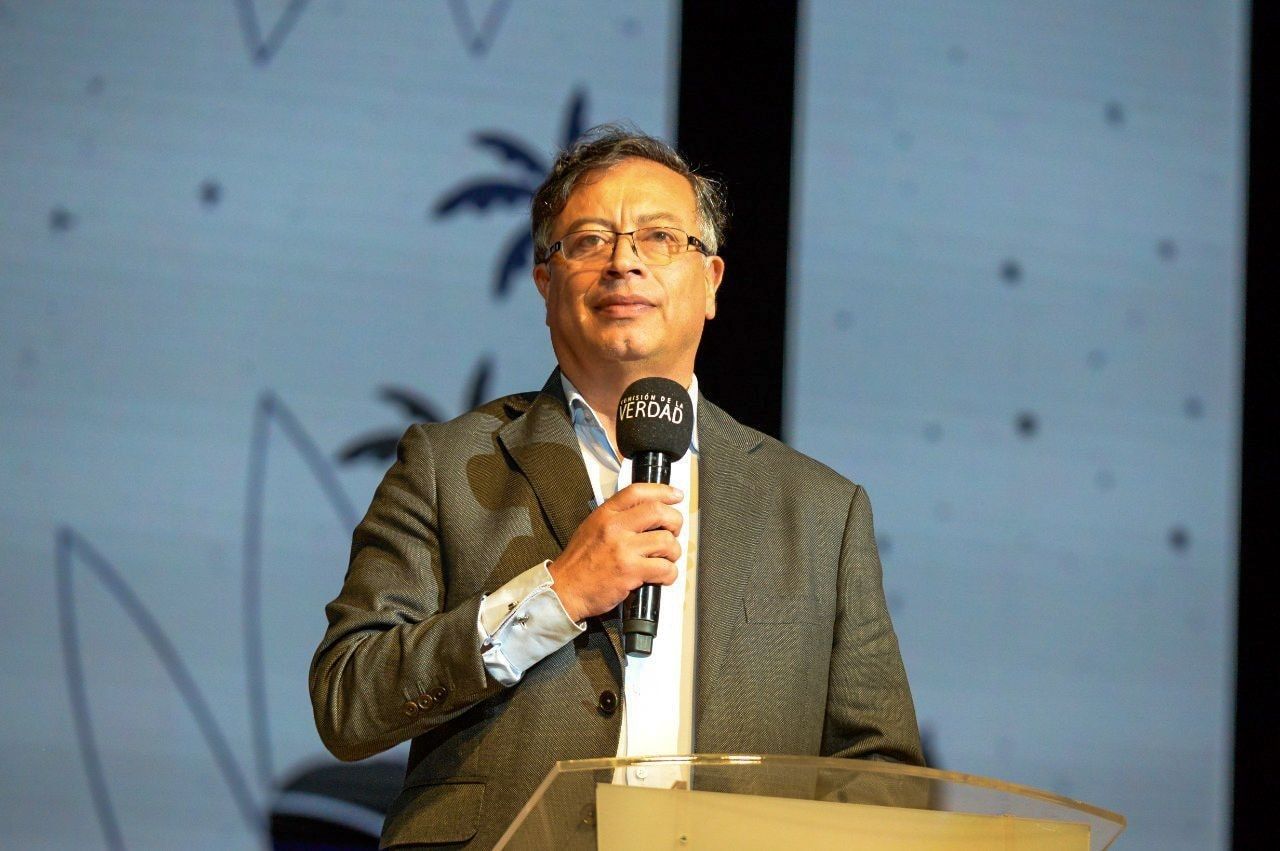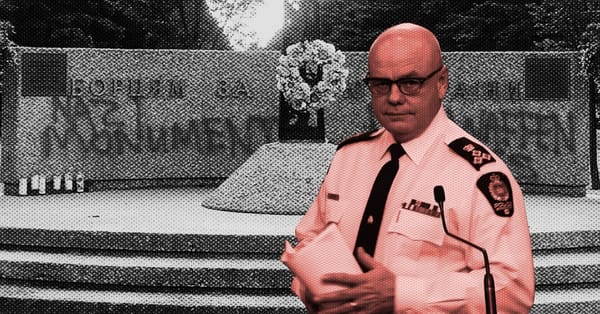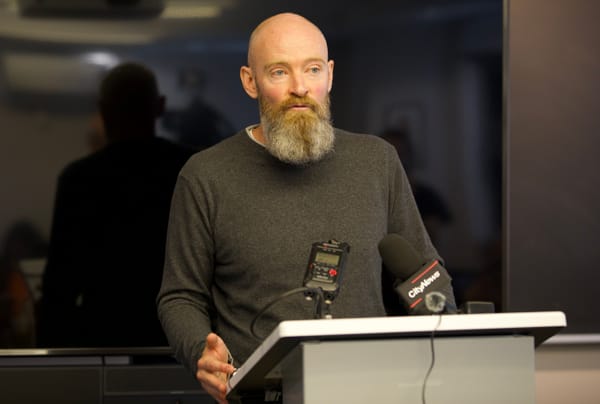Former guerilla fighter Gustavo Petro, who has been described as a “leftist firebrand,” was elected Colombian president on June 19 on an explicit promise to rein in the country’s dependence on fossil fuel extraction by blocking new auctions for oil and coal exploration contracts.
While campaigning, Petro said he wanted Colombia to move away from an economy based on fossil fuels and mining, which make up half of the country’s exports, towards one based on tourism and agriculture. He pledges this transition will be completed in the next 12 years.
The market reaction to Petro’s election was swift for Canadian energy companies with interests in Colombia. Canacol Energy Ltd. lost 9.3 per cent of its market valuation overnight, while Parex Resources Inc. and Gran Tierra Energy Inc. each lost 11 per cent.
But the fact that Colombian presidents have been limited to single four-year terms since 2015, and that Petro must push legislation through a divided congress, means the companies aren’t too concerned about their long-term prospects.
“We continue to believe it is difficult for radical changes to be made due to the balance of powers in Colombia,” financial analyst Phil Skolnick told Bloomberg last month.
Petro has called for “a grand coalition of powers that can speak much more strongly in a global context to fight against climate change, and to transition Latin America toward economies that are decarbonized, productive and based on knowledge.”
He suggested the traditional political spectrum of right-wing and left-wing is increasingly irrelevant, arguing that a new divide is emerging between the “politics of life,” which protect the environment, and the “politics of death,” which encourage continued fossil fuel extraction.
Petro compared coal and oil to cocaine, stating that Colombia’s “three main exports are poisons,” an analogy the Colombian Mining Association called “irresponsible and above all disrespectful.”
But does Petro’s rhetoric match the reality he’s inherited?
Speeding up the inevitable
Freddy Caceres is the manager of the University of Calgary’s Extractive Resource Governance Program, which works to facilitate connections between Canadian oil and gas producers and markets in the developing world, with an eye towards the inevitable transition to renewable energy.
He told The Maple that Petro’s policies towards extractive industries aren’t as radical as suggested by his fiery rhetoric. That’s because the major players in the oil and gas industry have already accepted there will be a transition away from fossil fuels. The question is how long it takes.
Caceres estimates this transition will take about 30 years, which is longer than Petro has promised, but the president-elect has four years to set the tempo.
“What I understand from Petro’s statements is that he wants basically to make this process faster in terms of Colombia taking the lead in entering this process and trying to accommodate things in order to have more or less the energy transition almost in place in about 15 years,” said Caceres.
But there are legal constraints to Petro accelerating the transition at too rapid a pace. There are already contracts in place that have a time span of two to three decades, the last round of which were signed last year with the establishment of 30 new exploration campaigns.
“In those contracts, it says that the first six years have to be focused on exploration and then they will have 24 more years for production, and if that production goes well, there’s the possibility to extend them in time,” said Caceres. “Those are processes much longer than these four years of government.”
This is a dilemma that isn’t unique to Colombia. Democratically elected governments across the world have to make decisions all the time that exceed their time in office – particularly when it comes to climate policy.
Challenges of governing
The president-elect has given no indication that he will abandon the contracts that his predecessors agreed to, but has said that he will stop awarding new licences to producers.
Given how dependent the country is on fossil fuel revenues, Petro will have to ensure that as oil and gas winds down, there are sufficient renewable energy exports to replace them with. But Caceres said the industry is already moving towards renewables, citing publicly-traded state oil company Echo Petrol’s major investments last year in solar fields.
“The challenge for the new government is how to pass from its political statements into a more moderated and appropriate implementation of those ideas through the appropriate decisions,” he said.
Caceres said Petro must avoid the errors made in Ecuador, where the government failed to consider the impacts of its gasoline tax on the impoverished masses, provoking Indigenous-led protests which have been violently suppressed. Notably, the protestors’ call for a reduction in gas prices was accompanied by a demand for tighter restrictions on fossil fuel and mining projects.
“The biggest consideration, in my opinion, is how to manage the internal economic conditions associated with this process, because in Colombia, as any other country in Latin America, people have limited economic resources,” said Caceres.
What happens if Petro moves too fast?
Tyler Shipley, a historian and author of Canada in the World: Settler Capitalism and the Colonial Imagination, told The Maple that Petro is in a tough spot, given the generally right-wing orientation of Colombia’s armed forces, whom Petro fought against with the M-19 guerilla movement. A coup is a possibility if Petro steps too far out of line from extractive industries’ plans, said Shipley.
“Petro is in the complicated position that faces most leftists who take power by elections; the people may have supported him, but the state apparatus is against him and will try to block any left policies he pursues,” Shipley explained. “He will either have to concede to right-wing policy positions or face the wrath of the apparatus around him, and that can be a very difficult line to walk.”
Petro’s victory and the evident popularity of his platform is the product of a broad acknowledgement across Latin America “that the extractive industries have been among the central ways North American capital has sucked wealth from them,” Shipley added.
Sections of the country’s militant left, from which Petro hails, fought to protect large swathes of Colombian land from extractive corporations for a time.
Former president Álvaro Uribe Vélez, who was in power from 2002 to 2010, largely crushed the country’s remaining left-wing guerillas in a bloody war that relied on violence from right-wing paramilitaries and killed tens of thousands of people, said Shipley.
While Uribe’s reign was deadly for Colombians, it was a windfall for Canadian fossil fuel interests.
By 2019, Canadian mining companies held $1.4 billion in Colombian assets, and in 2018, the total amount of Canadian energy assets in the country was valued at $8 billion, according to the most recently available federal government data.
Following Uribe’s campaign against the guerillas, Canadian business and political interests helped Colombia rewrite its laws to be more favourable for industry, cutting taxes and curtailing environmental and community consultation, said Shipley.
“Canada behaved like a classic colonial power, cooperating with local comprador elites to ravage the Colombian people of their resources and wealth,” he explained. “Colombians have long understood this dynamic and fought against it, and the election of Gustavo Petro is one manifestation of that anger."
Shipley said the region is riddled with examples of countries who have faced the wrath of Canada and its allies in recent years after moving too ambitiously against its economic interests — Venezuela, Haiti, Honduras, Nicaragua, Venezuela and Bolivia, to name a few.
“There is no question that the Canadian government will be using whatever resources it can to protect Canadian oil and gas companies' profits in Colombia, and that will mean undermining and opposing any effort by the Petro government to rein them in,” said Shipley.
Jeremy Appel is a journalist based in Calgary, and his work has appeared in The Sprawl, CBC Calgary, Jacobin, Passage and the Forward. He also co-hosts the Forgotten Corner and Big Shiny Takes podcasts.
Go deeper
Here are a few stories from our archive that expand on today's story
Documents Raise More Concerns Than Answers About Armoured Vehicle Sales to Colombia
A Canadian human rights organization says documents obtained from Global Affairs Canada (GAC) raise more concerns and questions than answers about whether or not the Colombian national police are using Canadian-made armoured vehicles to violate human rights.
The Powerful Oil And Gas Executives Opposing Canada’s Climate Commitments
Who are the key players behind these powerful forces stymying Canada’s climate commitments?
Top Maple story this week
Canadian Diplomats Flagged Israel’s Poor Record of Investigating Attacks on Journalists After Reporter’s Death

Catch up on our latest stories
- Canadian Officials Monitored U.S., U.K. and EU Statements Before Responding to Israel’s Killing of Journalist.
- Five MPs Removed from Anti-Choice List After Promising to Review Bills More Carefully.
- The Bloody History of Canadian ‘Peacekeeping.'








Member discussion